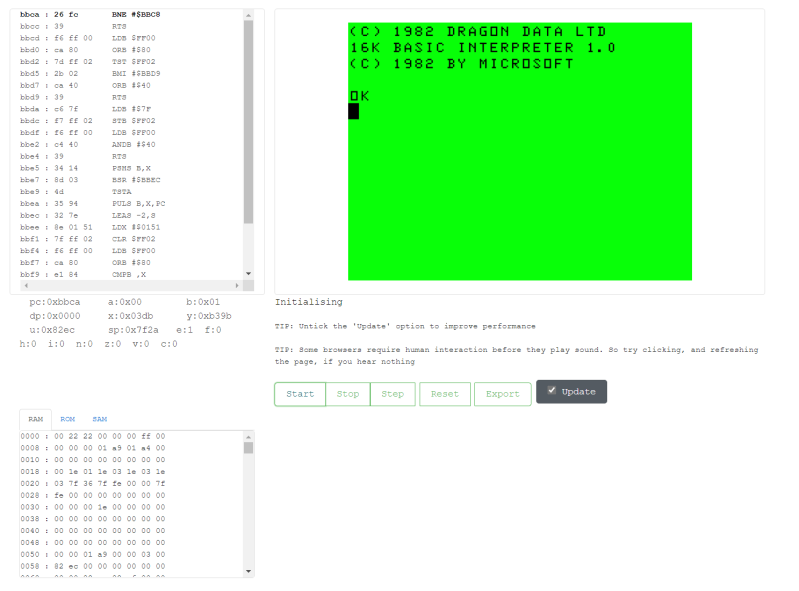[Marquis de Geek] has a profound love of old systems. Tired of writing new emulators from scratch for each project, his newest project EMF generates the emulator for him. An XML document describes the layout of the memory, CPU description, and screen handler. The output is currently a single-page Javascript emulator application with an assembly and a dissembler. However, but that backend can easily be swapped to another language such as Rust or C++.
Since EMF is a framework that provides a common way to describe the emulated machine, you get a common emulator user interface for free. There’s a lot of flexibility offered here as well. Opcodes can be implemented as a large switch statement or individual functions, depending on the target language’s performance. Self-modifying code can be detected and handled separately. Custom features or hardware can be injected easily by writing a module in the target language.
While the source code for the EMF hasn’t been released yet, several of the machines that [Marquis de Geek] has built with EMF are open-source on GitHub. So far the list includes Dragon32, Sinclair ZX80, Sinclair ZX81, Sinclair ZX Spectrum, Elliott 903, Chip8, Cosmac VIP, and the MegaProcessor. Each has a live emulator that runs in your browser.
While [Marquis de Geek] hopes to release a binary version of the EMF soon, we’re very much looking forward to the EMF source coming out once the code has been cleaned up. We love the trend towards creating easier and more accessible emulators, such as this Twitter bot that runs Atari programs.
Thanks [Steven] for sending this one in!
















Actually… https://github.com/MarquisdeGeek/emf-javascript
That’s just infrastructure/templates, not the builder itself. There’s still no public way to create your own emf emulators, you can only use the existing ones.
And that isn’t the generator, that’s just a “runtime” of sorts… as stated on it’s page “This library code is to aid the development of emulators, written in Javascript, by providing basic utility code to simulate ROM and ROM chips, handle CPU control, as so on.”
It’s sounding a tad similar to something software houses had in the 80s, for cross developing/porting for a dozen 8 bits on a mainframe.